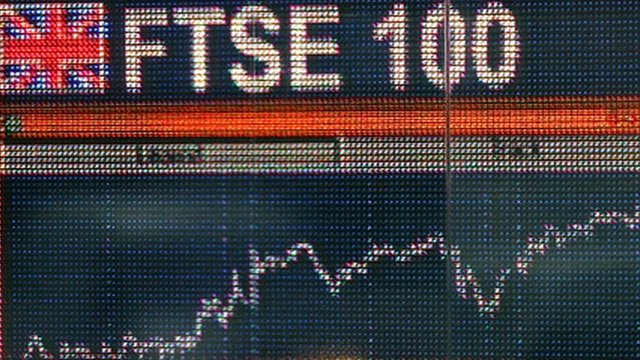
Following yesterdays Black Monday, Britains leading FTSE 100 Index has bounced back.
European markets bounced back this morning after losing billions of pounds yesterdays day of panic sparked by spiralling losses in China yesterday.

BYPASS THE CENSORS
Sign up to get unfiltered news delivered straight to your inbox.
You can unsubscribe any time. By subscribing you agree to our Terms of Use
Latest Video
The FTSE 100 index opened up 1.7 per cent before climbing throughout the morning as investors in London appeared to shrug off further dramatic falls in Asia overnight. Chinese stocks tumbled again on Tuesday morning, plunging more than 7%, and hitting their lowest level in eight months.
After suffering its biggest fall in four years yesterday, Wall Street is also expected to bounce back. US markets are already showing strong gains, just a few minutes after opening.
According to the Independent, the S&P 500 climbed 1.4 per cent in the first seconds and the Dow Jones was also up 1.2 per cent
Sky News reports:
There was a recovery in European shares, after they lost around £387bn during Monday’s panic.
The pan-European FTSEurofirst 300 index, which slumped 5.4% yesterday, rose 2.5%, while the eurozone’s blue-chip Euro STOXX 50 index was up 2.3%.
However, the FTSEurofirst is still at risk of posting its biggest monthly loss since 2002, having fallen more than 10% so far in August.
US shares were up 2% when the Dow opened on Tuesday afternoon.
On Monday, it plummeted by an unprecedented 1,000 points, before closing down 588 – its worst decline for four years.
“In much the same way as we had a broad mark down yesterday, we’ve had a broad pull up today,” said Richard Hunter, head of equities at Hargreaves Lansdown.
“It’s possible that the market is now considering that it might have overshot slightly yesterday.”
Sky’s Tadhg Enright said around £188.5bn has been wiped off the value of FTSE 100 companies over the past two weeks – when the turmoil began, sparked by China’s devaluation of its yuan currency.
“It means British shares are now on average back to where they were at the beginning of January 2013,” he said.
Goldman Sachs has reduced its three-month outlook for the FTSE to 6,000 points from 6,900 points, although it believes the global economy is not at risk of recession.
The mass sell-off was triggered by China’s slowing economy – as well as plunging commodity prices and fears over the timing of the next US interest rate hike.
The People’s Bank of China is under pressure to announce a new round of quantitative easing to boost money supply in an economy suffering weaker demand across all sectors.
Beijing has intervened numerous times to try to stop speculators selling vulnerable assets, including allowing the state pension fund to invest up to 30% of its assets in Chinese stocks.
After Tuesday’s rout, it tried to boost the economy by cutting interest rates for the fifth time since November.
However, China’s policymakers have largely sat on their hands during the last few days of bloodletting – to the frustration of investors hit by plunging portfolios.


